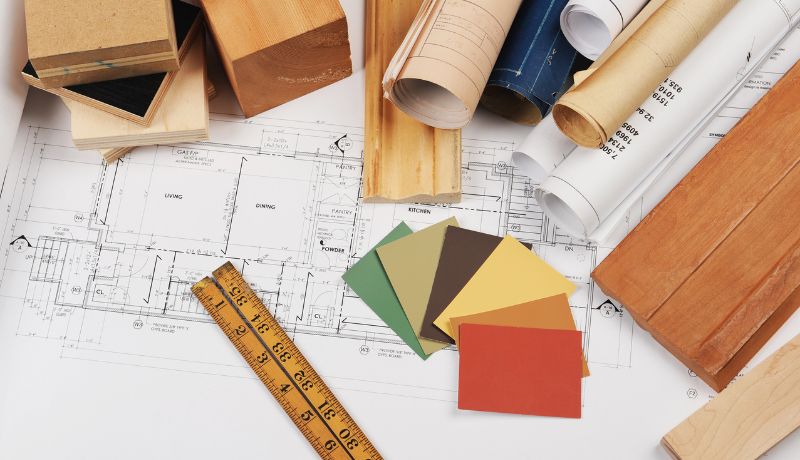
Home renovations are time-consuming and costly, so establishing—and sticking to—a strategy to stay on budget is critical. And too often, in an effort to stay on budget, property owners cut corners that will ultimately come back to haunt them when they seek to sell their homes. Side-stepping the permits, licenses, and approvals needed for any improvement is all too common, but doing so can have a number of serious implications.
Building Code Processes
There are many reasons that contractors, renovators, and homeowners opt to skirt the building code processes, but cost, time, and tax increases (following a re-assessment) are the most common. As tempting as these motivators may be, it’s important to know what the ramifications are of doing so. In addition to drawing significant fines if the authorities find out (a $25,000 for the most severe violation plus additional penalties and accrued interest), not adhering to established permits, licenses and building approvals is dangerous. Additionally, if an inspector is unable to determine whether or not the work was in compliance with the code, the homeowner may be responsible to redo the project entirely. As a consequence, dramatically impacts the timing and costs associated with the project.
Permits Required
Permits are required to monitor that projects are meeting code standards with the aim of not impairing public health and safety. These codes are developed by the International Commercial and/or Residential Building Code to implement criteria related to zoning requirements, environmental standards (water, water systems, and run-off), and building: electric, mechanical, plumbing, and insulation. Even simple projects involving adding a retaining wall, or updating a kitchen, bathroom, or outdoor space may require a permit. Violating construction codes and zoning requirements puts people at risk. There are a number of potential hazards where family members and neighbors may be affected if building codes are not followed. Depending upon the improvement done, there could be a number of catastrophes that occur such as faulty electric work that causes a fire, a faulty beam that causes a wall or floor to collapse, improper plumbing that results in a flood, or using incorrect or not enough insulation causing environmental issues such as mold, insect infestation, or other harmful issues. Quality of life could be impacted; and, the insurance company most likely would not cover the cost of repairing the site or cover an injured party.
Problems When Selling
Aside from the physical risk of not complying with construction codes for renovations, it can pose problems when it’s time to sell a home. That’s because part of the home-selling due diligence process involves aggregating all public records about the home. Missing permits and renovation records will affect whether a homeowner can finance a home. They will also significantly affect the sale price, and could even cause a sale to fall through. Returning a home to code is extremely costly and time-consuming. That is why following the process set forth by the New York City Department of Buildings is imperative.
Construction Permits and Your Project
Some easy steps to follow include:
– Determine which permits are necessary.
– File plans and applications.
– Secure approval for your plan from the department.
– File for or pull permits (industry term meaning individual who requests a permit; possibly derived from the old file draw days).
– Complete the project.
– Receive the final inspections.
– Receive a letter of completion.
Project Scope
The first step in any renovation is to understand what construction permits are needed for your project. Consult with experts in the field such as your general contractor, or architect, and if applicable seek approval from a board and/or management company. Each building has its own project approval process and unique documentation requirements and fees. Project scope determines the type of documents required, such as architect plans, contractor licenses, and insurance. Project approval time-frames range from 2 to 6 weeks once all required information is submitted, but it may take longer if the renovation is complex or is being conducted in a historic district that requires community board approval. When permits are required for a project, the go-ahead to commence work will only come after permits are obtained.
Construction Permit Types
There are four construction permit application types:
1) New Building (NB): Must be filed by a professional engineer or registered architect
2) Alternation (ALT 1): A major change to the Certificate of Occupancy of a building, such as converting it from commercial to residential, an interior conversion of the building or a space within a building, or a building addition. It must be filed by a professional engineer or registered architect.
3) Alteration (ALT 2): Renovations with multiple types of work that do not change the building’s use, egress (exits), or type of occupancy. Most kitchen and bathroom renovations require ALT2 permit applications and must be filed by a professional engineer or registered architect.
4) Alternation (ALT 3): A minor alteration that involves only one type of work, such as a curb cut or a fence. Some ALT3 permits do not require detailed plans, and some can be filed by a non-professional.
Homeowners Responsibility
It is the homeowners’ responsibility to ensure that all changes to a property are completed in compliance with New York City Law and code even if a professional is hired. When in doubt, contact a New York Department of Buildings representative. It’s worth the hassle. To meet your renovation timelines, consider hiring, or have your professional hire, a permit expediter for your small renovation jobs to full-scale property development to manage regulations, zoning rules, and building codes.
Proper Permits
As a purchaser of a home, it is imperative to research that all work completed on a home has the proper permits in accordance with the code to avoid problematic surprises that could cause significant loss of money and severe headaches. In summary, conduct your due diligence by heading to the Department of Buildings in the municipality in which the home is located or by hiring a “permit puller” who will conduct the research for you.
For More Information, Please Visit:
http://www.nyc.gov/html/dob/downloads/pdf/tool_kit_illegal_home_use.pdf

